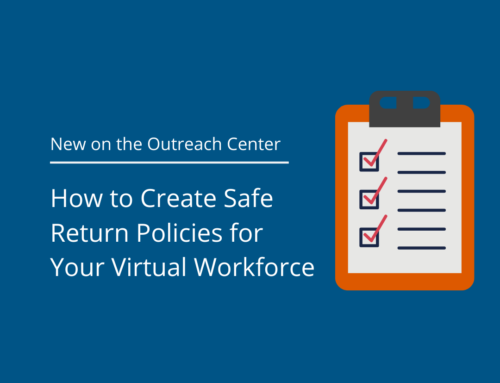When you work from home, you often go hours, if not days, without “seeing” anyone. That can make it hard to stay focused, productive and feeling like your work matters. No matter how many Zoom meetings you attend, conference calls you dial into, or virtual happy hours you join, working from home can lead to feelings of isolation and separation.
When you know no one is going to see anything below your waist, it’s hard to even find a reason to change out of your Star Wars PJ bottoms. So, how do you stay motivated to keep doing your best?
Today’s Focus: Finding Motivation in a Remote Work World
 Those feelings of isolation and separation can quickly lead to drops in motivation. Being a virtual office by design, we cope with these “ations” even in a “normal” world. Here are some things we’ve learned along the way.
Those feelings of isolation and separation can quickly lead to drops in motivation. Being a virtual office by design, we cope with these “ations” even in a “normal” world. Here are some things we’ve learned along the way.
Identify What Motivates You
Take the time to truly understand what it is that motivates you and leverage that motivator. Just keep in mind that some things are a little different right now, which means you might have to tap into different motivators. For instance, if being around people and sharing a pizza over a conference room table is what motivates you to put together a killer presentation, you might have to focus on something else that brings you joy during this pandemic.
Establish a Morning Routine
Your day probably looks different without your morning commute and stop at Dunkin’ Donuts, but you can still have a regular schedule. Map out your new routine in a way that makes sense for you. Mine looks a little like this:
- Drink coffee and check in with Me.
Run through today’s priorities. Journal. Quiet Me-Time.
- Get Dressed.
If attending a webinar today, consider brushing hair.
- Let family members know schedule for the day.
Going to be unavailable at certain times? Let family know. Want to have lunch with spouse? Clue him in.
- Help youngest child get set up for her day.
Locate supplies, log in to computer, list out tasks. Try to anticipate needs to prevent interruptions.
- Grab breakfast and settle in to work.
You can take it farther and establish a basic routine for your entire day if you’re a planner. Add timeframes, task lists – whatever makes sense for you.
Establish Goals
Arthur Ashe said it well: “Start where you are. Use what you have. Do what you can.” While there are many things we can’t do in our current situation, one thing we can do for ourselves is set goals. And while it’s generally good to shoot for stretch goals, in a time when stress is high and motivation challenging, be cautious about over-stretching on too many goals. Aim high, but keep goals (optimistically) realistic.
Set quality goals.
A good method is to set SMART goals – goals should be Specific, Measurable, Achievable, Relevant and Time-Bound. Keep goals simple, but explicit and have the metrics in place to be able to track progress.
Know Your Why.
Take the time to understand why you are setting each goal and how achieving that goal will be personally beneficial. Is it something to advance your career? Something that could grow your skillset? A project that, if done well, could lead to another one you’d love?
If your goal of “Finish May TPS Reports” will lead to a raise that could allow you to change Fluffy’s food from generic to that one with the cute kitten on the bag, tap into Fluffy’s happiness as your motivator.
Break goals into smaller goals.
Big goals are easier to handle in smaller chunks, so break those larger goals into smaller, more manageable chunks. That TPS Report can be broken into its various components, each of which can have a checkbox for you to ceremoniously “X” out as you complete it.
Create an action plan for each smaller goal.
For each goal, have a plan. If you’re a checkbox person, write up a task list. If you’re a sticky note person, slap some colored notes on the wall. If you like flowcharts, chart away.
Celebrate Your Wins
Remember how effective that shiny gold star was for convincing you to tackle that whole potty-training thing? Just because we’ve mastered the toilet doesn’t mean the reward concept won’t still work.
Every time you reach one of your goals, or even when you check off an individual task, take a moment to celebrate. Slap that sticker on the chart. Take a walk. Chat with a coworker. Give yourself (and Fluffy) a treat. How you celebrate isn’t the focus, it’s the celebration itself. Once you start doing this, motivation will start to come from knowing there’s a yay-me party waiting to happen.
Anticipation Makes a Good Motivator
Every morning before going about her day, my daughter asks, “What are you looking forward to today?” And wouldn’t you know it, that 8-year old is on to something. Asking that question as it relates to goals can be extremely helpful. Even if the answer is, “I’m looking forward to this task being off my plate so I can stop having weird dreams about it,” the idea of better sleep can help motivate you to get it done.
Keep in mind, when you complete tasks, you feel good about it, which in turn helps you get motivated to do more. It can be a feel-good, motivating loop, so let’s jump in and start running.






